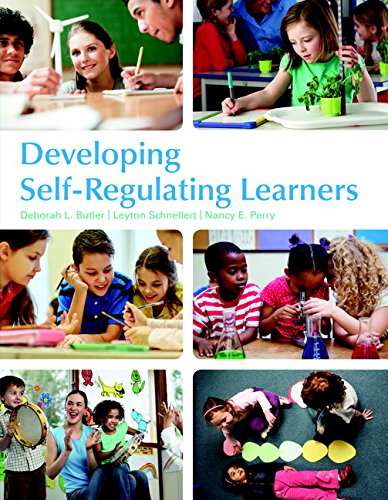
For special education, classroom practice and educational psychology courses in Teacher Education programs.
Developing Self-regulating Learners was written as a resource for any educator interested in learning more about self-regulated learning (SRL) and how to support the development of self-regulating learners. It is also an ideal text for Teacher Education and graduate-level courses in educational psychology, special education, and classroom practice. The book is organized into three parts:
Part One presents “portraits of SRL” that help educators define self-regulated learning, consider why fostering SRL is so important, and see relationships between SRL, social-emotional learning, and executive functioning.
Part Two describes and illustrates SRL—promoting practices. Chapters in this section describe: how educators can establish safe and supportive learning environments that foster rich forms of learning and SRL; key guidelines educators can follow when building SRL-promoting practices; how educators can design activities and tasks that create opportunities for rich forms of learning and self- regulation; how educators can weave explicit supports for SRL into environments and activities; and how educators can structure assessments and feedback to inform and empower learning.
Part Three pulls together ideas presented in Parts One and Two, giving rich case examples of how and why supporting SRL can assist educators in: meeting the needs of diverse students; motivating and empowering learners; and, ultimately, empowering 21st-century learning.
Overall, this book will assist preservice and inservice educators in connecting research on self-regulation to learning in classrooms, and in effectively linking theoretical content with practical classroom applications and strategies.